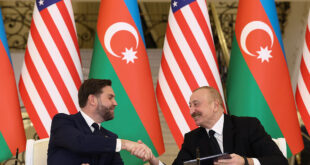 The British side has frozen ties with the FSB (Russian Federal Security Service)Â for the so-called “anti- terrorist cooperation”, British Ambassador to Russia Anthony Brenton said.
The British side has frozen ties with the FSB (Russian Federal Security Service)Â for the so-called “anti- terrorist cooperation”, British Ambassador to Russia Anthony Brenton said.
“After Lugovoi was not extradited, we did freeze relations with the FSB. It was a natural reaction. But we are willing to continue ties with other agencies. All other ties in that sphere were frozen at Russia’s initiative”, he has said in his interview to Kommersant newspaper.
In December, Anthony Brenton called that the murder of former Russian special services officer Alexander Litvinenko in London in 2006 was among the principal reasons for tensions in Russian-British relations in 2007.
He pointed out that London had been seeking the extradition of Andrei Lugovoi, a Russian citizen, whom British authorities treat as the prime suspect in Litvinenko’s murder.
“We sought his extradition, which was refused, regrettably. And there were some measures that we took after that, we expelled some diplomats, and you expelled some diplomats, other things have happened,” Brenton said.Â
The “freezing” of the ties occurred against the backdrop of the aggravation of the situation around the British Council. British Foreign Secretary David Miliband said that the Moscow office of the British Council extend its activities in the Russian regions in order to compensate for the closure of regional offices.
Â
On Thursday the leadership of British Council had regretfully decided to suspend operations in Yekaterinburg and St Petersburg, thus capitulate under the pressure from Russian authorities. Britain did not want to go further to the aggravation of the conflict, which is projected by mass media as a threat to rupture of diplomatic relations between Moscow and London.
 Eurasia Press & News
Eurasia Press & News



